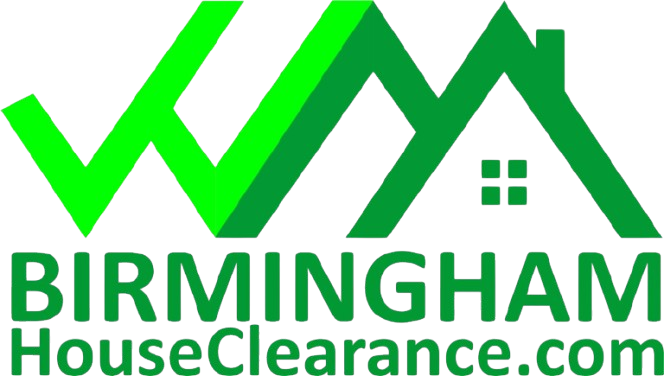Expert Strategies for House Clearance in Lincoln: Essential Small-Town Insights
Clearing a house in Lincoln involves navigating the complexities of small-town life, which can both enrich your experience and present various challenges. To master the skills necessary for Lincoln house clearance: small-town insights, it’s essential to grasp the local landscape, the regulatory framework surrounding property clearance, and the significance of fostering relationships with local authorities. Each of these elements is crucial in ensuring that the clearance process is both smooth and efficient, ultimately contributing to a positive outcome.
Identifying and Overcoming the Distinct Challenges of Small-Town Clearances

Small towns like Lincoln offer a unique array of logistical challenges that starkly contrast with those found in urban environments. The close-knit nature of small communities often results in stricter regulations and a heightened awareness regarding property activities. For instance, access to certain properties can be restricted due to narrow roads or older infrastructure that may not accommodate larger vehicles. Recognising these nuances is vital for anyone involved in a Lincoln house clearance: small-town insights.
Furthermore, the dynamics within the community can significantly influence the clearance process. Residents often maintain long-standing relationships, which can lead to increased scrutiny of your actions. Therefore, it is crucial to approach local residents with respect and transparency, as they may hold valuable insights or even express interest in items being cleared. Navigating these social interactions effectively can be both beneficial and challenging; hence, devising a strategy to engage with the community respectfully is paramount.
Navigating Key Regulations and Permits Essential for Clearances in Lincoln
Before commencing any clearance operation, it is imperative to familiarise yourself with local regulations. In Lincoln, certain permits might be necessary, particularly if the clearance involves the disposal of large volumes of waste or hazardous materials. For example, the Lincoln City Council provides specific guidelines regarding waste disposal that must be adhered to, ensuring that your clearance aligns with local environmental policies.
Moreover, restrictions may exist regarding the types of items that can be discarded and the methods of disposal. Understanding these regulations is not only essential for avoiding potential fines but also for establishing trust within the community. Engaging with the council or local waste management services can clarify these regulations, allowing you to operate confidently within the established legal framework.
Establishing Productive Relationships with Local Authorities
Building strong relationships with local authorities can significantly enhance the efficiency of the clearance process. By connecting with council members or local waste management personnel, you can glean insights into best practices and streamline your operations. These relationships can lead to beneficial recommendations and referrals, thereby bolstering your reputation within the community.
Moreover, maintaining a direct line of communication with local authorities is invaluable when unexpected issues arise during a clearance. Whether you have queries about a permit or concerns regarding waste disposal, knowing whom to contact can save time and alleviate stress. In the context of Lincoln house clearance: small-town insights, these connections can prove instrumental, providing both support and guidance throughout the process.
Effective Preparation Strategies for a Successful House Clearance in Lincoln

Thorough preparation is crucial when embarking on a house clearance in Lincoln. A well-organised strategy ensures that the process is efficient, methodical, and respectful of both the property and its contents. This section outlines the key steps necessary for preparing for a successful clearance.
Conducting a Comprehensive Property Assessment: Key Considerations
Before initiating the clearance process, it is vital to carry out a detailed assessment of the property. This evaluation should encompass the condition of the structure, the identification of any hazardous materials, and a determination of which items are to be cleared. Additionally, understanding the property’s layout will aid in planning the logistical aspects of the clearance.
During the assessment, it is essential to identify any sentimental items that may require special handling. This consideration is particularly pertinent in small towns, where emotional connections to possessions can be profound. Recognising these items early in the process allows for the development of a respectful strategy for managing them during the clearance.
Developing a Detailed Clearance Plan: Steps and Timelines
A comprehensive clearance plan is vital for streamlining operations and ensuring that deadlines are met efficiently. Begin by outlining the various steps involved in the clearance, from the initial assessment to final disposal. Setting a realistic timeline based on the property’s size and complexity can help keep the project on track.
Incorporate buffer time for any unexpected challenges, particularly in small-town contexts where resources may be limited. By having a clear plan in place, stress can be minimised, and every aspect of the clearance can be effectively addressed, ultimately leading to a successful outcome.
Gathering Essential Tools and Equipment for Efficient Clearances

Equipping yourself with the right tools and equipment is fundamental for an effective house clearance. Depending on the property and the items being cleared, you may require a variety of tools, ranging from basic hand tools to larger equipment for heavy lifting. Additionally, consider transportation needs, ensuring that you have access to a vehicle capable of handling the volume of items to be cleared.
Investing in high-quality equipment not only facilitates the job but also enhances safety during the clearance process. In small towns like Lincoln, where resources may be scarce, being well-equipped can distinguish you from competitors and ensure a smoother operation.
Essential Insights for House Clearance in Lincoln: Maximising Value and Eco-Friendly Practices
As you delve into the intricacies of Lincoln house clearance: small-town insights, it is crucial to consider how to maximise the value of cleared items while adopting eco-friendly practices. This section provides insights into these vital aspects of the clearance process.
Strategies for Maximising the Value of Cleared Items
One of the primary advantages of conducting a house clearance is the potential financial return from items that are no longer needed. Strategically sorting through cleared items can uncover valuable opportunities. Begin by categorising items based on their resale value, condition, and demand. High-value items, such as antiques, collectibles, and quality furniture, can often yield a significant profit, while other items may be better suited for charitable donation.
Consider hosting a sale or utilising online platforms to reach a wider audience. In small towns, word of mouth can be particularly influential, so be proactive in promoting your sale through local community boards or social media. By maximising the value of cleared items, you not only enhance financial returns but also contribute positively to the community.
Exploring Eco-Friendly Disposal Options Available in Lincoln
As environmental consciousness grows, opting for eco-friendly disposal methods is increasingly important. In Lincoln, several sustainable disposal options are available. For instance, many local councils operate recycling programmes that can be leveraged for specific materials, effectively reducing landfill waste.
Additionally, consider collaborating with local charities or organisations that can repurpose or recycle items, diverting waste from landfills while supporting local initiatives. By prioritising sustainable practices, you demonstrate social responsibility, which can enhance your reputation within the community and align with the growing trend of eco-consciousness.
Approaching Sentimental Items with Care: Practical Tips and Techniques
Handling sentimental items during a house clearance necessitates sensitivity and respect. These possessions often carry considerable emotional weight, making it essential to approach them with care. Begin by discussing with the property owner their attachment to specific items, and consider involving them in decisions regarding what to keep, donate, or sell.
For items that may not hold significant sentimental value but are still cherished, consider offering temporary storage until the owner decides on their fate. This approach not only demonstrates compassion but also helps maintain trust throughout the clearance process. Balancing practical clearance aspects with clients’ emotional needs is a hallmark of successful operations in small-town environments.
Understanding the Emotional Dimensions of House Clearance
House clearance often presents emotional challenges, not only for the property owner but also for the professionals involved. Effectively navigating these emotional aspects is vital for creating a supportive atmosphere throughout the clearance process.
Providing Support to Clients Throughout the Clearance Journey
Offering emotional support to clients is a critical component of any house clearance operation. Many individuals find the process daunting, particularly when clearing a family home filled with memories. Being empathetic and patient can significantly ease their burden. Take the time to listen to their concerns and validate their feelings, as this is crucial for building trust and rapport.
Furthermore, providing practical solutions and guidance can alleviate some of the stress associated with the clearance. Whether assisting in categorising items or suggesting potential beneficiaries for donations, your role as a supportive partner during this time can make a meaningful difference in their experience.
Managing Personal Emotions as a Clearance Professional
As a clearance professional, effectively managing your own emotions is equally essential. Engaging with clients who are experiencing loss or transition can evoke personal feelings, making it critical to maintain professionalism throughout the process. Developing techniques to compartmentalise your emotions can help you remain focused on the task at hand.
Consider employing practices such as mindfulness or deep breathing exercises to centre yourself before interacting with clients. This not only enhances your ability to offer support but also allows you to approach each clearance with a clear mind and a compassionate heart. Balancing empathy with professionalism is vital in navigating the emotional landscape of house clearances.
Recognising When Clients May Benefit from Professional Counselling Services
In certain situations, clients may require emotional support that exceeds what you can provide. It’s important to recognise indicators that suggest a need for professional counselling, such as overwhelming grief or difficulty making decisions related to the clearance. In such instances, recommending that they speak with a mental health professional is a compassionate and appropriate response.
By acknowledging when a client may need additional support, you demonstrate your commitment to their overall well-being. This not only enhances your reputation as a responsible professional but also reinforces the trust clients place in you during such a vulnerable time.
Effective Marketing Strategies for Your House Clearance Services in Lincoln
Establishing a successful house clearance business in Lincoln necessitates the implementation of effective marketing strategies tailored to the small-town context. This section explores essential steps for building your brand and reaching your target audience effectively.
Creating a Strong Local Brand Identity
Your brand serves as the foundation of your business, and establishing a reputable identity within Lincoln‘s small-town market is crucial. Begin by defining your unique selling proposition (USP) – what differentiates your house clearance services from those of competitors? Whether it’s outstanding customer service, eco-friendly practices, or a dedication to community involvement, ensure your USP resonates with local values.
Utilise local advertising channels, such as community newspapers, bulletin boards, and events, to promote your services. Building a robust local presence fosters trust and credibility, both of which are vital for attracting clients in a small-town environment.
Harnessing the Power of Social Media for Local Engagement
Social media can serve as an effective tool for connecting with potential clients in small towns. Platforms like Facebook and Instagram enable you to engage with the local community, showcase your work, and promote your services. Consider creating a business page where you can share updates, client testimonials, and useful tips related to house clearance.
Engaging with the community through social media can also create opportunities for collaboration with local businesses or organisations. By highlighting your expertise and cultivating online relationships, you can enhance your visibility and credibility in Lincoln.
Building Networks with Other Local Businesses for Mutual Growth
Networking with other local businesses can yield valuable opportunities for collaboration and referrals. Consider reaching out to real estate agents, estate lawyers, or local charities focused on donation and recycling. Establishing partnerships can lead to mutually beneficial relationships where both parties refer clients to one another, thereby expanding your reach and service offerings.
Participate in local events or join community organisations to connect with other business owners and foster relationships. Building a network within the community enhances your reputation and can lead to increased business opportunities as people become familiar with your services.
Identifying Key Trends in Lincoln House Clearance Services
Staying abreast of the key trends in the house clearance industry is vital for adapting your services to meet evolving demands. This section explores significant trends impacting Lincoln house clearance: small-town insights.
Embracing Minimalism and Its Effect on Clearance Demand
The minimalist movement has gained substantial traction in recent years, influencing consumer behaviour and expectations surrounding house clearance. As more individuals strive to declutter their lives and embrace simplicity, the demand for clearance services has seen a notable increase. This trend is particularly relevant in small towns, where residents may be seeking to downsize or simplify their living spaces.
Understanding this shift can enable you to tailor your services to meet the needs of clients aiming to adopt a minimalist lifestyle. Highlighting your ability to assist them in sorting possessions and making informed decisions about what to keep, donate, or sell can resonate well with this audience.
Technological Advancements Revolutionising Clearance Operations
Technology is transforming house clearance services, enhancing efficiency and accuracy across various tasks. From inventory management software to online platforms for selling items, leveraging technology can streamline operations and improve client experiences.
Consider adopting tools that facilitate communication with clients, track inventory, or manage scheduling. Embracing these technological advancements can distinguish you from competitors and position your business as a forward-thinking leader in the clearance industry.
Anticipating the Future of House Clearance in Small Towns
The landscape of house clearance in small towns is changing, shaped by evolving consumer preferences and societal trends. As sustainability becomes increasingly significant, clients are more likely to seek services that prioritise eco-friendly practices and community involvement.
Remaining attuned to these trends will be vital for the future success of your clearance business. By continually assessing the market and adapting your services to align with client expectations, you can position your business for growth in the years ahead.
Real-Life Case Studies: Successful House Clearances in Lincoln
Real-world examples can offer valuable insights into the nuances of effective house clearance in Lincoln. This section presents case studies that spotlight successful strategies and lessons learned.
Case Study 1: The Delicate Clearance of a Historic Home
In one notable instance, a historic home in Lincoln required a meticulous clearance process due to its age and the sentimental value attached to many items. The clearance team began with a comprehensive assessment, identifying historically significant items that warranted special attention.
By collaborating with local historians and museums, the team ensured that valuable artefacts were preserved and displayed appropriately. This case exemplifies the importance of community engagement and the necessity for sensitivity when handling culturally significant items.
Case Study 2: Compassionate Clearance of a Hoarder’s Home
Another challenging case involved clearing a home filled with hoarded items. The clearance team approached this situation with care, prioritising safety and emotional support for the client. By involving mental health professionals and family members, they created a supportive environment that allowed for a respectful and thorough clearance.
This experience highlighted the importance of recognising the emotional complexities inherent in such clearances and the value of a compassionate approach.
Case Study 3: Efficient Clearance with a Quick Turnaround
A quick turnaround clearance in a small town showcased the team’s ability to adapt to tight deadlines. By developing a streamlined plan and mobilising resources swiftly, the team successfully completed the clearance efficiently while upholding high standards of service.
This case underscored the importance of preparation and flexibility in addressing unexpected challenges, demonstrating that a well-organised approach can lead to successful outcomes even when under pressure.
Common Inquiries Regarding House Clearance in Lincoln
What is the Typical Duration for a House Clearance? The time required for a house clearance in Lincoln can vary significantly based on the property size and the volume of items to be cleared. Typically, clearances can take anywhere from several hours to multiple days.
How Should Valuable Items be Handled? If you encounter valuable items during a clearance, consider consulting experts for appraisal. Options include selling them through auctions, online platforms, or donating to local charities.
Is It Feasible to Clear My House Independently? While DIY clearance is possible, it can be time-consuming and physically demanding. Hiring professionals can ensure a more efficient and stress-free process, especially for larger or more complex clearances.
What Costs Are Associated with House Clearance? Costs can vary based on the property size, volume of items, and services required. It’s advisable to obtain quotes from multiple clearance companies for comparison.
Are There Items That Cannot Be Disposed Of? Certain items, such as hazardous materials or specific electronics, may have restrictions on disposal. Always check local regulations and guidelines before proceeding.
How Can I Ensure a Smooth Clearance Process? Preparation is key. Conduct a thorough assessment, create a clear plan, and maintain open communication with all parties involved to facilitate a smooth clearance.
What Should I Do If I Encounter Sentimental Items? Handle sentimental items with care. Engage in discussions with the property owner to determine whether to keep, donate, or sell these items, ensuring their emotional needs are respected.
Is Selling Items Before the Clearance Permissible? Yes, selling items prior to a clearance can help reduce clutter and potentially provide additional funds for the property owner. Be sure to communicate this plan with all parties involved.
What Happens to Items That Cannot Be Sold or Donated? Items that cannot be sold or donated will typically need to be disposed of responsibly. Refer to local disposal guidelines for instructions on handling these items.
How Do I Select a Reliable Clearance Service? Seek recommendations from friends or local businesses, check online reviews, and ensure the service you choose is licensed and insured for your peace of mind.






